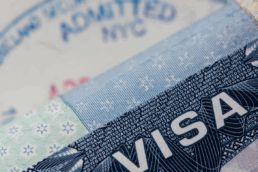Qualifying as an H-1B Specialty Occupation
By Angela J. Schnell, Esq.
Background
In April 2017, President Trump signed the Buy American and Hire American Executive Order (EO 13788), which aims to stimulate economic growth, promote economic and national security, strengthen the U.S. middle class, and create good jobs for Americans at decent wages. Section 5 of the Executive Order requested the Attorney General, the Secretary of State, the Secretary of Labor and the Secretary of Homeland Security to issue new guidance to protect the interests of U.S. workers. Specifically, the Executive Order requested reform suggestions to help ensure that H-1B visas are awarded to the most-skilled or highest paid beneficiaries.
As a result of the Executive Order, United States Citizenship & Immigration Services (USCIS) began working on a combination of rulemaking, policy memoranda, and operational changes. In practice, USCIS is more closely scrutinizing all areas of H-1B Petitions, with a focus on ensuring that H-1B status is only being granted to positions that qualify as a specialty occupation.
Definition of Specialty Occupation
Pursuant to 8 CFR 214.2(h)(4)(iii)(A), to qualify as a specialty occupation the employer must show that the position offered meets at least one of the following criteria:
- A bachelors or higher degree or its equivalent is normally the minimum requirement for entry into the position;
- The degree requirement is common to the industry;
- The employer normally requires the degree for the position; or
- The nature of the position duties is so specialized and complex that the knowledge required to perform these duties is usually associated with the attainment of a bachelors degree or higher.
The definition of a specialty occupation has not changed since the Executive Order was issued. While the requirements remain the same, there has been a marked difference in adjudication of what constitutes a specialty occupation for H-1B purposes.
Specifically, USCIS has begun to take a narrower view of which positions qualify as specialty occupations. Positions that previously qualified without question, such as Computer Programmer or Computer Systems Analyst, are being more intensely scrutinized. USCIS is often issuing Requests for Evidence alleging that positions meet none of the above requirements, and requesting that employers clearly show how the position qualifies.
Proving that a Proffered Position Qualifies as a Specialty Occupation
Essentially, USCIS must find that to perform the job offered the beneficiary must possess, at minimum, a bachelors degree or its equivalent in a specific field. In responding to Requests for Evidence (RFE), practitioners should attempt to qualify on all four grounds of what constitutes a specialty occupation to provide the strongest support of the positions qualification.
First, to determine the normal minimum requirements for entry into a position, USCIS primarily relies on the Occupational Outlook Handbook (OOH)s classification. The OOH includes typical job duties and entry level requirements, such as degree required and specific fields of study.
Practitioners must play close attention to the typical entry level education. For example, while the OOH states that most computer programmers have a bachelors degree in computer science, some employers hire workers with an associates degree. In March 2017, USCIS issued a memorandum essentially stating that because an associates degree is sufficient for some computer programmer positions, a bachelors degree is not normally the minimum requirement for entry into the a computer programmer position. This is a reversal of USCISs previous adjudication of the computer programmer position and reiterates the importance of proper position classification.
Additionally, USCIS has begun to scrutinize positions that require a bachelors degree without specifying a narrow specialty in which the degree must be obtained. USCIS issued RFEs for positions in which the OOH did not clearly specify a major required of the bachelors degree. Take, for example, a Market Research Analyst position. The OOH states that at least a bachelors degree is needed, but appropriate fields of study include market research, statistics, math, computer science, business administration, social sciences, and communications. USCIS has taken the position that the variety of fields of study applicable to the position means that the position is not appropriate specialized. A bachelors degree alone is not sufficient. If a position most closely aligns with a position where numerous specialties are listed, practitioners must clearly show why an employer requires a certain specialty in order to be able to perform the job duties as outlined, which will be further discussed when discussing how to show that an employer typically requires a specific degree for the position.
Ready to have Berardi on your side?
Whether you’re a business looking to hire or a professional hoping to relocate, immigration law can be complicated. But you don’t have to do it alone. Put our experience to work for you.


